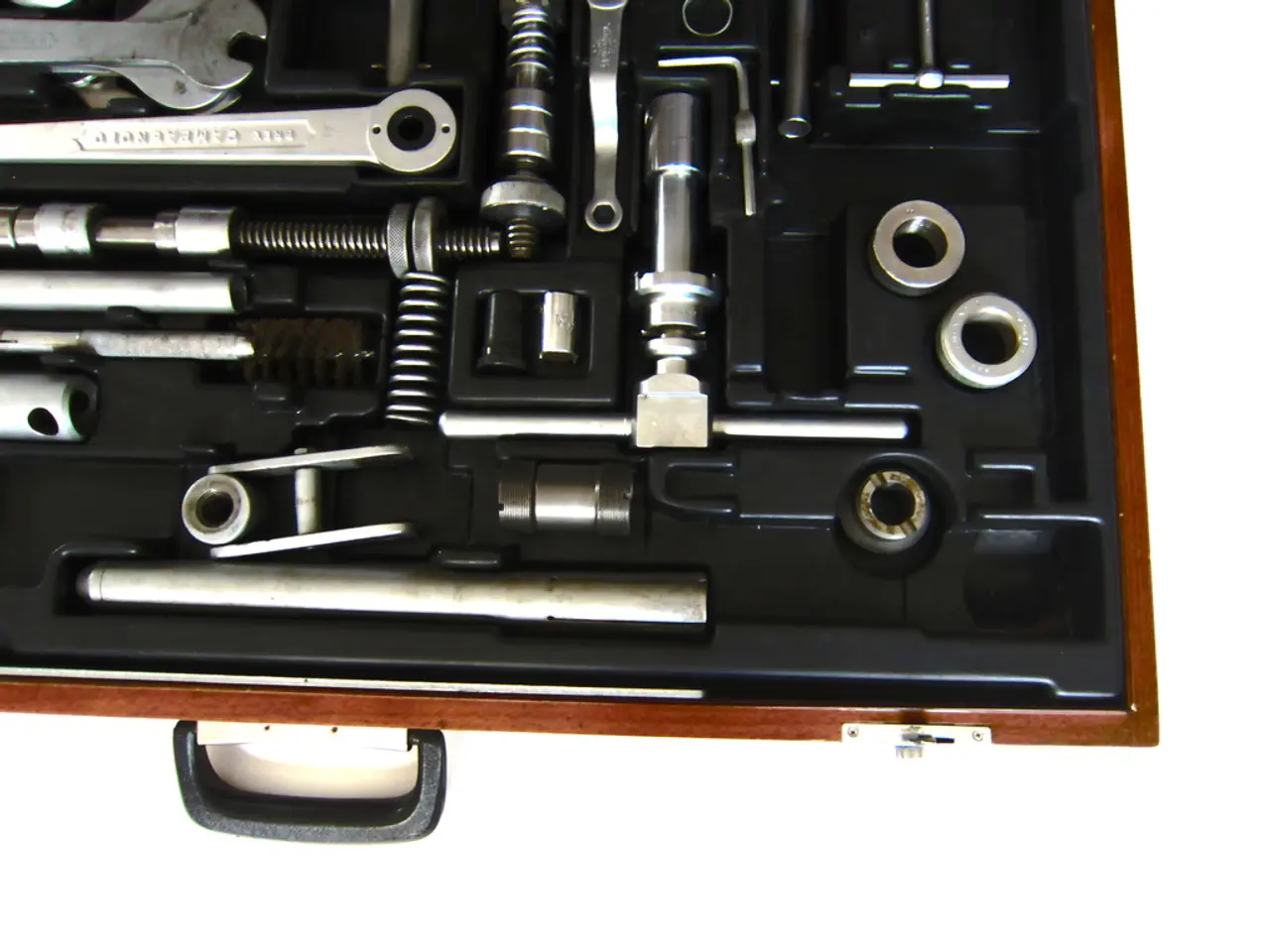Reigning Order: Strategies for Subduing Disorder and Mastering Life's Turmoil
In today's fast-paced world, clutter, disorganization, and stress can easily become overwhelming. However, by adopting a combination of targeted decluttering, efficient time management, digital organization, habit formation, and mindset shifts, you can regain control and create a more organized and less stressful environment.
Decluttering Environments
Start small and focused, tackling one room or area at a time, especially where clutter causes the most stress or where you spend the most time. This prevents overwhelm and builds momentum [1][3]. Use sorting systems like the Five-Box Method (Keep, Sell, Donate, Recycle, Discard) or simpler categorizations like Keep, Discard, Maybe, to help decision-making and reduce emotional burden [1][3]. Digitize sentimental items to preserve memories and reduce physical clutter [1]. Make decluttering regular by scheduling short, consistent sessions weekly to prevent clutter buildup over time [3]. Adopt the “full hands in, full hands out” method, always entering and leaving rooms carrying items to their proper places, which reduces clutter incrementally [4]. Use the 1-3-5 method, tackling one big, three medium, and five small decluttering tasks per day to make progress manageable [4].
Time Management to Prevent Clutter and Stress
Develop simple daily routines (making the bed, managing dishes, quick tidying) to maintain order [5]. Set aside weekly and monthly times for deeper cleaning and organizing, ensuring no space becomes unmanageable [5]. Use a gradual task approach, targeting easier tasks first to build motivation [4].
Taming Digital Chaos
Digitize physical items to save space [1]. Organize files systematically and regularly purge unnecessary digital files to avoid digital overload (implied best practice aligned with physical decluttering principles). Use digital tools (calendars, reminders) to keep track of tasks and deadlines efficiently.
Building Anti-Unruly Habits
Incorporate decluttering and cleaning into daily or weekly routines as habits rather than sporadic tasks [3][5]. Use sorting methods to streamline decision-making and reduce procrastination in clutter removal [3]. Adopt the "one in, one out" rule to keep clutter from returning by limiting new items without removing old ones [5].
Shifting Mindset
View decluttering as creating mental space and reducing stress, not just physical tidying [4]. Connect with support groups for motivation and practical tips to stay encouraged during decluttering efforts [3]. Focus on progress in small, manageable steps rather than perfection, which reduces anxiety related to decluttering [3]. Recognize eco-friendly decluttering practices as contributing positively to the environment, which can enhance motivation [2].
By following these strategies, you can promote sustainable organization, break down overwhelming tasks, foster consistency, and reframe clutter management as a pathway to mental clarity and well-being. Additionally, consider scheduling focus blocks where only priority contacts can reach you, employing the 5-Minute Rule (do tasks that take less than five minutes immediately) and the Two-Minute Rule (do tasks that take under two minutes immediately) to prevent small tasks from snowballing into chaos.
- Committing to a lifelong learning mindset, incorporate goal-setting as part of your personal growth strategy to consistently work on decluttering environments, improving time management, and adopting digital organization practices for sustainable organization.
- Pursue productivity by adopting targeted decluttering techniques like the Five-Box Method, digitizing items, or implementing the "one in, one out" rule for a less stressful and more organized lifestyle, fostering a conducive environment for personal growth and learning.
- As part of a comprehensive education-and-self-development plan, embrace habit formation by scheduling regular decluttering sessions, establishing daily routines, and adopting anti-unruly habits to promote a clutter-free environment, leading to not only an organized life but also mental clarity and well-being.




